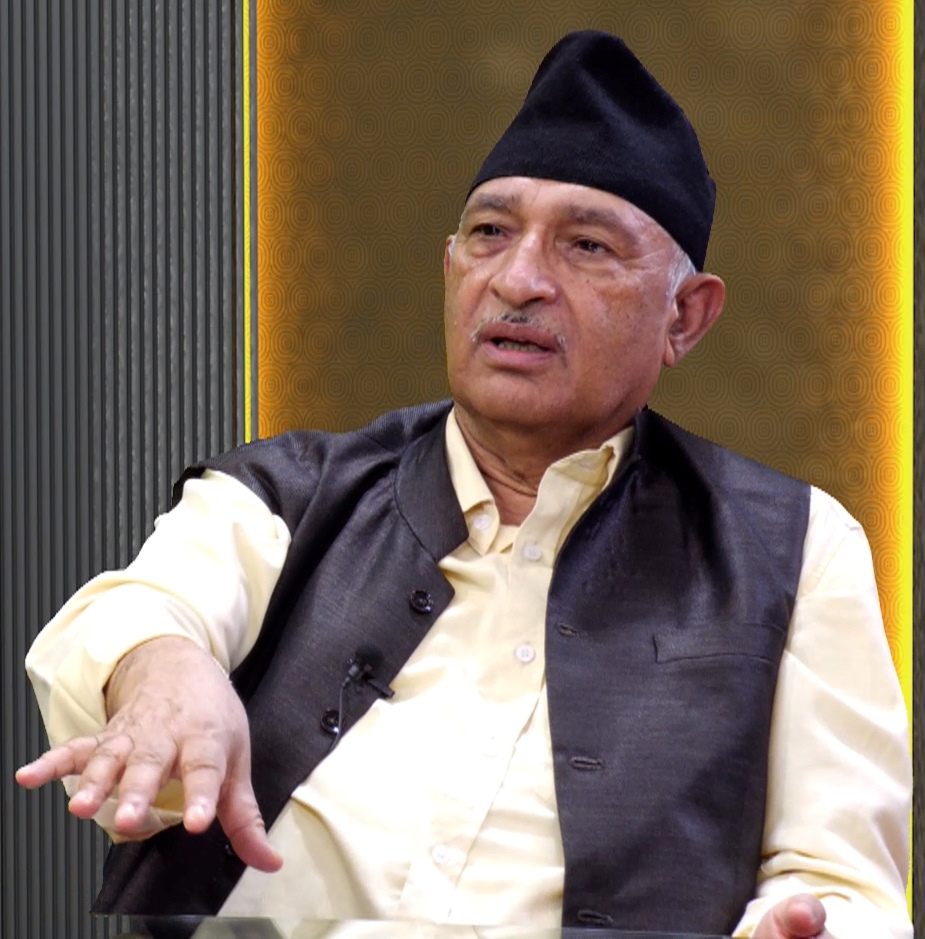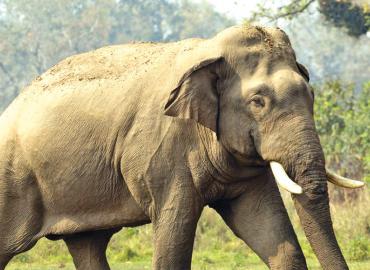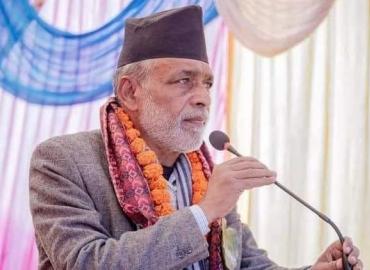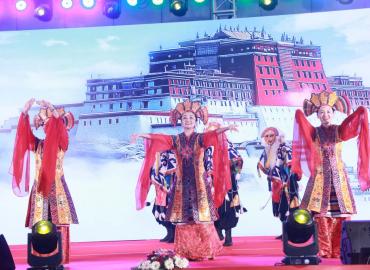Dr. Purushottam Dahal
Although different political systems comment on human rights in different ways, it is a definite principle and we firmly believe that it should not be violated by the state, society or individual.
(1) Difference in polity
There are a few different forms of late polity. Like religious, traditional, autocratic monarchy, liberal democratic with constitutional monarchy, military, non-party, one-party, pluralistic multi-party. Apart from these, no other form of government system is in use till date. At some point in history, religious gurus and unorganized groups of society have ruled, but in the last stage of the system there is none of them. Human rights are natural rights. International declarations, treaties, conventions, and domestic laws have been enacted to institutionalize and regulate this right. Although the subject of human rights is clearly mentioned in Eastern thought, it has not been seen to be meaningful over time because it is not binding.
There is and will never be a greater formula for enunciating the principle of the right of human equality. However, this formula could not be fully implemented in practice. श्वज्ञामन हैत्मवत means consider all human beings and creatures as yourself. Self-identity means that suffering, happiness, pain, justice, injustice are similar to your own experience and are similar to others. This important formula has been forgotten by the development process of people. These theories and ideas have been undermined by different interest groups and consumerist materialism. With the establishment of the modern state system, principles are gradually being proposed to connect the subject of human rights with civilization, with behavior, with conduct and with daily life. They are being defined as per requirement.
The famous existentialist thinker Jean Paul Sartre says: Order is made by the individual himself, in order to exist and live. However, when the same system starts eating a person, then his independent consciousness starts calling for revolution. That is, freedom is the fundamental characteristic, quality and character of man. If you don’t have freedom, you have to be subordinate to others like a domestic animal. Liberty and social justice are interdependent and complementary to rights. There is no freedom without human rights, there can be no human rights without freedom. Similarly, there is no human rights without social justice and social justice is not possible without human rights. When a political system is established that prohibits these interdependent elements then the rebellious consciousness within man is and should be automatically activated. Such rebellious consciousness can manifest itself in violent or non-violent forms.
(2) The History of Rebel Consciousness
In the context of Nepal, the attraction to human rights seems to have developed over the past one and a half hundred years, becoming a history of the same rebellious spirit at the personal level of people rather than theoretically. In particular, Lakhan Thapa’s rebellion, Madhavraj Joshi’s spiritual teachings, Krishna Lal Adhikari’s makai ko kheti were the result of the rebellious spirit that grew within the individual. Reviewing the situation created by the indirect pressure of the same consciousness, the establishment of schools by the Rana rulers, the beginning of the media house, the plans for development even though it was little, the end of the sati system announced by the then Rana Prime Minister Chandra Shamser on June 8, 1920 are the initial steps of change. The abolition of slavery is also a milestone in the context of human rights.
The life story of Yogamaya and her fellow travelers who raised their moral voices directly with the state and sacrificed themselves for social justice, the struggle for equality between women and men, the end of child marriage and the announcement of widow remarriage, the demand for justice for the poor, is a great and historical story of the human rights movement in Nepali soil. Political movements alone do not necessarily promote human rights. Also, the brutal violent campaign in the name of political change violates all principles of human rights. Prachanda Gorkha practiced fine political campaign in 1931. However, The campaign for civil liberties launched by Nepal Praja Parishad, which was established and active in 1936, should be considered as the first organized political step towards human rights in Nepal. It should be understood that the rebel mentality developed in the people from the 1940 Shaheed incident as the predecessor of the Nepali Congress established in 1946, the All India Nepali National Congress, Women’s Movement, Jaitu Sanskritam Movement and the subsequent creation of the Nepali Congress and the establishment of the Nepal Communist Party presented the themes of human rights to the Nepali society.
The Indian independence movement, Mao Zedong’s communist movement in China, and the horrors of World War II were taking shape in Nepal’s transformation. After the end of the Second World War, the issue of human rights in the world took an international form. In 1948, when the United Nations issued the Universal Declaration of Human Rights, citizens of all countries began to seek legal protection of their rights based on this declaration. This declaration is the greatest achievement in terms of human rights. Based on the 30-point declaration, many treaties, conventions, agreements and declarations have been born. At a regional level or at an international level. For some compulsion or some moral pressure.
(3) The right to dissent is a human right
In Nepal, the interim constitution of BS. 2007 and the constitution of BS. 2015 seem to inspire the citizens to use all kinds of rights peacefully. However, the move of Poush 1, 2017 resulted in the revocation of all democratic rights including the right to dissent in Nepal. The autocratic nature and nature of independent Panchayat established after the end of multi-party political system was the first factor in our consciousness choosing the rebel form. From Poush 1, 2017 to Chait 4, 2017, Nepal is proven to be a total autocrat, dictator, and ruler. We are the witnesses of many brutal events of that period. Part 3 of the B.S 2017 Constitution contained provisions on fundamental rights and duties. Fundamental rights included: freedom of speech and publication, freedom of religion, right against exploitation, right to constitutional remedies, freedom of peaceful assembly.However, if we look at the practice, during the period of thirty years, the most attacks were focused on the freedom of press and expression, the most used law was the peace and security treaty law and the time when the most arrests were made. In the year B.S 2042, one hundred newspapers were banned at one time. In the same proportion, leaflets were arrested. Referring to the saying that if the mouth of truth is shut, the mouth of falsehood will run, the state system will keep the mouth of falsehood open and promote its supporters.There have been incidents of banning the sale and distribution of newspapers published abroad that have articles about Nepal. At least during this period, more than 400 journalists had to suffer triple punishment. I myself was a victim of double punishment many times after BS. 2035. At that time, what journalists used to call the black law, under which: arrest of editors or journalists, confiscation of published newspapers, sealing of the press all happened together.
Confiscation of the works of many authors, banning of ideological literature and newspapers were common. I remember: ‘Tarun’ magazine published from Banaras was banned in Nepal and those who carried it were caught in the conspiracy against state case. All copies of famous human rights activist Hrishikesh Shah’s work Essays in the Practices of Government in Nepal were completely confiscated by Birganj Customs and Trivi Customs in AD. 1982 and no compensation was paid later. This work was printed abroad. Famous economist Dr. Devendra Raj Pandey’s work titled Tagaro, meaning political dissent, was banned by the Kathmandu district administration. In an interview in a weekly newspaper,. I remember the incident when scholars like Prof Dr. Lokraj Baral, Prof. Ananddev Bhatt had to give a statement in the then Bagmati Superintendent’s office. At the same time, famous literary thinker Purna Prasad Brahman’s work Ek Katha was banned.These are only some representative information regarding the current state of freedom of speech and expression. There was a statutory provision for peaceful assembly. However, regarding human rights, the meeting organized by Amnesty International, the question of the establishment of the Nepal Human Rights Organization, and the formation of the Human Rights Protection Forum were also intervened by the police. Political leaders could not move freely anywhere. In other words, the fundamental rights provided in the constitution were only to make eyes of the international community.
(4) Independent Extreme Terrorism
The non-partisan system prohibited all dissenting rights in Nepal. The Public Security Act issued in B.S 2018, i.e. Peace and Security Act, was a provision to be imposed at any time at the discretion of the local administrator. Under this Act, a person who was jailed once for 6 months could be forced to stay in jail for years with repeated extensions. There are many examples of this. Even more horrific is the incident: the killing of political leaders by prisoners on the pretext of moving prisons.
After BS. 2046, the issue of human rights has become important. After the United People’s Movement, the Constitution of BS 2047, issued at the initiative of the United Government formed under the leadership of Krishna Prasad Bhattarai, kept the fundamental rights intact. Bhattarai, the only political leader of Nepal, believed that freedom has no limits and should not be restricted. In principle this is correct. But the state apparatus has different recognition. Virtually any state system creates and should create laws to prevent violence and protect citizens’ livelihoods, control ethnic, religious, regional violence, and protect the country’s independent, sovereign supremacy. But the state itself and the state administrators need to follow the rules and procedures.
(5) A period of brutal violence
The worst human rights situation occurred during the ten years of armed violence carried out by the Maoists from BS 2052. Madhes movement of BS 2063 and BS 2064, Gaurkand, Tikapur incident of BS 2072 are examples of human rights violations. The Nepali people are still suffering from its brutality. About 1,000 civilians are missing, they have no clue, more than 13,000 civilians have been killed and they have not been able to get justice. About five thousand were injured and disabled. Thousands of citizens were displaced. There is no salve in his wounds. The details of extrajudicial killings by the government and brutal killings by violent groups including Maoists are not complete.
(6) People’s movement of 2063
The United People’s Movement of BS. 2063 was focused on two issues: firstly, the end of the despotic thinking and dreams of the then King Gyanendra and secondly, freedom from the brutal, extreme, terrifying, extreme violence that the Nepali people have been experiencing for ten years. In the background of the 12-point consensus reached in Delhi in December 2062, the movement ended with the end of Gyanendra power, abolition of monarchy, federal, parliamentary democratic political system, secular state, proportional representation. Maoist fighters were accommodated in the army, and the violence came to an end. However, the exercise of fundamental rights according to the constitution, the principles guided by the Comprehensive Peace Agreement of November 2016 and the question of interim justice remain the same. Even the crimes committed in the name of politics are brought under political commentary and the use of consensus, cooperation and companionship has made the change for the victims of the conflict like a pipe dream. Now, it is being heard that the law is being prepared to give immunity to those who commit organized crimes no matter how many crimes they commit under the cover of a political principle. It is sad for all of us.
(7) Passive mechanisms
Currently, in terms of human rights, the National Human Rights Commission, the Disappeared Persons Inquiry Commission and the Truth and Reconciliation Commission are institutionalized. However, these commissions are dull. These commissions have no established role in the politics of divison. Even the judiciary, which protects the constitution and guarantees the rule of law, has become mired in the partisan quagmire. Extreme distortion is today’s paradox. For this reason, today there is a serious question: if the oppressors rule, if the victims do not get justice, if there is no peace and good governance, if the common people have to continue to be oppressed economically and socially, how will any meaning of change be established? No comparison can be made today based on the independent Panchayat period or the situation up to BS 2062.
Citizens will find the value of change in the present. If the present does not pay the price for change, the rebellious spirit is sure to act as stated in the beginning. What is the polar truth: Except for a multi-party political system based on pluralism, no system respects the principles of human rights. Therefore, any attempts to end it using a pluralist multi-party political system would be reprehensible. This is why we need to always be aware of utilitarian opportunism as individuals, organizations, professions or mechanisms working in the field of human rights. It should not be forgotten that human rights are the basic foundation of political culture and civilization. (From the July 2080 issue of Prachi)-inseconline






















